Shared by the African University Directory Accreditation Board (AUDAB) http://www.africanuniversitydiretory.org/ in partnership with The Opportunity News https://opportunitynews.tv/
Organization: UN-Habitat – United Nations Human Settlements Programme

Country: Kenya
City: Nairobi
Office: UN-Habitat Nairobi
Closing date: Friday, 30 December 2022
Posting Title: INTERN – URBAN RESILIENCE PROGRAMME SUPPORT, I (Temporary Job Opening)
Job Code Title: INTERN – PROGRAMME MANAGEMENT
Department/Office: United Nations Human Settlements Programme
Duty Station: NAIROBI
Posting Period: 16 December 2022 – 30 December 2022
Job Opening Number: 22-Programme Management-UN-HABITAT-197744-J-Nairobi (O)
United Nations Core Values: Integrity, Professionalism, Respect for Diversity
Organisational Setting and Reporting
The United Nations Human Settlements Programme, UN-Habitat, is the agency for human settlements. It is mandated by the UN General Assembly to promote socially and environmentally sustainable towns and cities with the goal of providing adequate shelter for all (www.unhabitat.org).UN-Habitat Regional Office in Africa (ROAf), located in Nairobi, Kenya, is working with African governments to take early action to position themselves for predominately urban populations. The portfolio of ongoing projects in Africa is very diverse regarding geographic coverage and development partners.The current portfolio of UN-Habitat on Urban Resilience, Climate Change Adaptation, and Disaster Risk Reduction is expanding in the Sub-Saharan African countries, especially for Small Island Development States (SIDS) and the Sahel region.
SIDS face multiple challenges due to their high vulnerability and exposure, extreme climate, and remote location. These countries are affected by common/transboundary climatic threats, triggering consequences such as devastating tropical cyclone seasons, seasonal and acute drought, increased incidence of heavy rains, and rising sea levels. Some of these disasters result in deadly and highly harmful effects, such as destroying communications, energy and infrastructure, homes, health facilities, and schools. Additionally, some of these countries face challenges in responding with adequate measures due to limited institutional capacity, scarce financial resources, and a high degree of vulnerability to systemic shocks. Industries that constitute a significant part of the GDP of small island economies, such as tourism and fisheries, are based on the island’s highly valued ecosystems which demonstrates the importance of preventing the degradation of biodiversity that can result from climate change, soil erosion, pollution, floods, natural disasters amongst others. In some cases, the overall vulnerability is worsened by salinization and poor water management, soil waterlogging (through volcanic ash), deforestation, soil erosion, and landslides.
UN-Habitat’s portfolio for SIDS under the ROAf Resilience Programme (Comoros, Seychelles, Mauritius, Sao Tomé and Principe, Cabo Verde, and Guinea Bissau), as well as Madagascar, manages projects in thematic areas around Urban Resilience, Disaster Risk Reduction and Climate Change Adaptation. The nature of these programmes varies from sub-regional projects strengthening Urban Climate Resilience, including a mix of city-level infrastructure projects and national-level capacity-building; normative and legislative technical assistance to national entities to improve national policies and planning codes to include urban resilience and DRR; green, pro-poor and resilient Covid-19 post-recovery initiatives; empowering of informal communities to integrate Nature-based Solutions and Ecosystem-based Adaptation in their resilience-building efforts; and various sub-regional initiatives leveraging the potential of digital technology to transform and enhance urban space and encourage the connectivity between insular governments. The intern will be under the overall supervision of the UN-Habitat, Nairobi, Regional Office for Africa, Human Settlements Officer.
The United Nations Human Settlements Programme (UN-Habitat) Nairobi, Regional Office for Africa (ROAF) Programme internship is for six (6) months.
In the context of the COVID-19 pandemic, applicants may be requested to undertake the internship remotely in view of constraints regarding visa issuance, international travel and access to UN premises. Applicants must be willing and prepared to undertake the internship remotely for a part or the entirety of the internship. The work hours during the internship shall be determined based on individual discussion between the intern and the supervisor(s) taking into consideration the minimum requirements of the Organization and the time difference between the hosting office and the location of the intern.
The Internship is UNPAID and full-time.
Interns work five days per week under the supervision of a staff member in the department or office to which they are assigned.
Responsibilities
Daily responsibilities will depend on the individual’s background, the intern’s assigned office as well as the internship period.
Under the overall supervision of the Human Settlements Officer (HSO) in the Regional Office for Africa (ROAf), the Urban Resilience Programme Support Intern will.
Contribute to the implementation of multiple projects aiming to reinforce local urban resilience in the framework of sub-regional and country programmes for the above-mentioned African SIDS and Madagascar.
Furthermore, support is needed within UN-Habitat’s Regional Office for Africa (Roaf) for undertaking the implementation of activities in the Central Sahel (Chad, Burkina Faso, Mali, Mauritania, Niger, Nigeria, and Senegal), aiming at strengthening the Humanitarian-Development-Peace nexus in the region, which includes the development of a Regional Assessment on the System of Cities of the Sahel and the implementation of the City Resilience Action Planning (City RAP) Tool.
More specifically, the following activities should be carried out:
Familiarize themselves with UN-Habitat’s mandate and the tools developed.
Support the City Resilience Action Planning (City RAP) Tool implementation in various secondary cities.
Support the Human Settlement Officer (HSO) and the Urban Resilience Programme Specialist in implementing the project activities both in the sub-regional projects and several country programmes for the SIDS portfolio, Madagascar and the Sahel.
Support the development of new projects and fund-raising proposals and undertaking research regarding urban resilience, climate change adaptation, and disaster risk reduction.
Perform other tasks as needed, including but not limited to note-taking, drafting minutes, translations, and attendance to meetings related to the activities and projects falling under the urban resilience, disaster risk reduction, and climate change adaptation portfolio in Roaf.
Candidates from the region are highly encouraged to apply.
Competencies
Communication: Speaks and writes clearly and effectively. Listens to others, correctly interprets messages from others and responds appropriately. Asks questions to clarify and exhibits interest in having two-way communication. Tailors language, tone, style and format to match the audience. Demonstrates openness in sharing information and keeping people informed.
Teamwork: Works collaboratively with colleagues to achieve organizational goals. Solicits input by genuinely valuing others’ ideas and expertise; is willing to learn from others. Places team agenda before personal agenda. Supports and acts in accordance with final group decision, even when such decisions may not entirely reflect own position. Shares credit for team accomplishments and accepts joint responsibility for team shortcomings.
Client orientation: Considers all those to whom services are provided to be “clients” and seeks to see things from clients’ point of view. Establishes and maintains productive partnerships with clients by gaining their trust and respect. Identifies clients’ needs and matches them to appropriate solutions. Monitors ongoing developments inside and outside the clients’ environment to keep informed and anticipate problems. Keeps clients informed of progress or setbacks in projects. Meets timeline for delivery of products or services to client.
Education
Applicants must at the time of application meet one of the following requirements: a. Be enrolled in a graduate school programme (second university degree or equivalent, or higher);
- Be enrolled in the final academic year of a first university degree program (minimum Bachelor’s level or equivalent);
- Have graduated with Bachelor’s degree, Masters, PhD or equivalent
Be computer literate in standard software applications (Microsoft Office).
Have demonstrated keen interest in the work of the United Nations and have a personal commitment to the ideals of the Charter;
Have a demonstrated ability to successfully interact with individuals of different cultural backgrounds and beliefs, which include willingness to try and understand and be tolerant of differing opinions and views.
Preferred areas of studies: Urban or Town Planning, Architecture, Social Science, Economics, Geography, International Development. or related field.
Desirable skills: Knowledge of standard software applications, Knowledge of graphic design software, writing skills, Ability to successfully interact with individuals of different cultural backgrounds and beliefs.
Work Experience
No working experience is required to apply for the United Nations Internship Programme. Your training, education, advance course work or skills should benefit the United Nations during your internship.
Interest in the themes of urban resilience is desirable.
Excellent communication skills and proficiency in computer software applications is desirable.
Languages
English and French are the working languages of the United Nations Secretariat. For this internship, fluency in oral and written English and French is required. Knowledge of another official UN language is desirable.
Assessment
Potential candidates will be contacted by hiring manager directly for further consideration.
Special Notice
Your application for this internship must include: 1. A completed application (Personal History Profile) and Cover Note, through the UN careers Portal. Incomplete applications will not be reviewed.
The Cover Note must include:
Title of the degree you are currently pursuing
Graduation Date
IT skills and programmes you are proficient in
Explain why you are the best candidate for this specific internship
Explain your interest in the United Nations Internship Programme, ensure to include all past work experience (if any).
- Proof of enrollment from current University (if not graduated).
- A copy of degree certificate (if you have already graduated).
Due to a high volume of applications received, ONLY successful candidates will be contacted.
“In the context of the COVID-19 pandemic, applicants may be requested to undertake the internship remotely in view of constraints regarding visa issuance, international travel and access to UN premises. Applicants must be willing and prepared to undertake the internship remotely for a part or the entirety of the internship”.
Portal will be removed at 11:59 p.m. (New York time) on the deadline date.
No Fee
THE UNITED NATIONS DOES NOT CHARGE A FEE AT ANY STAGE OF THE RECRUITMENT PROCESS (APPLICATION, INTERVIEW MEETING, PROCESSING, OR TRAINING). THE UNITED NATIONS DOES NOT CONCERN ITSELF WITH INFORMATION ON APPLICANTS’ BANK ACCOUNTS.
website: https://careers.un.org/lbw/jobdetail.aspx?id=197744

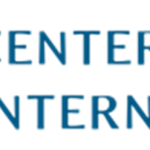


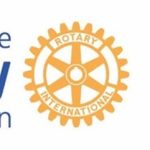
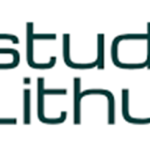
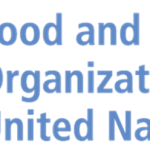

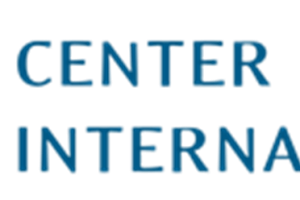
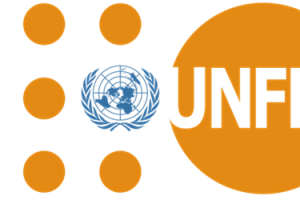









Add Comment